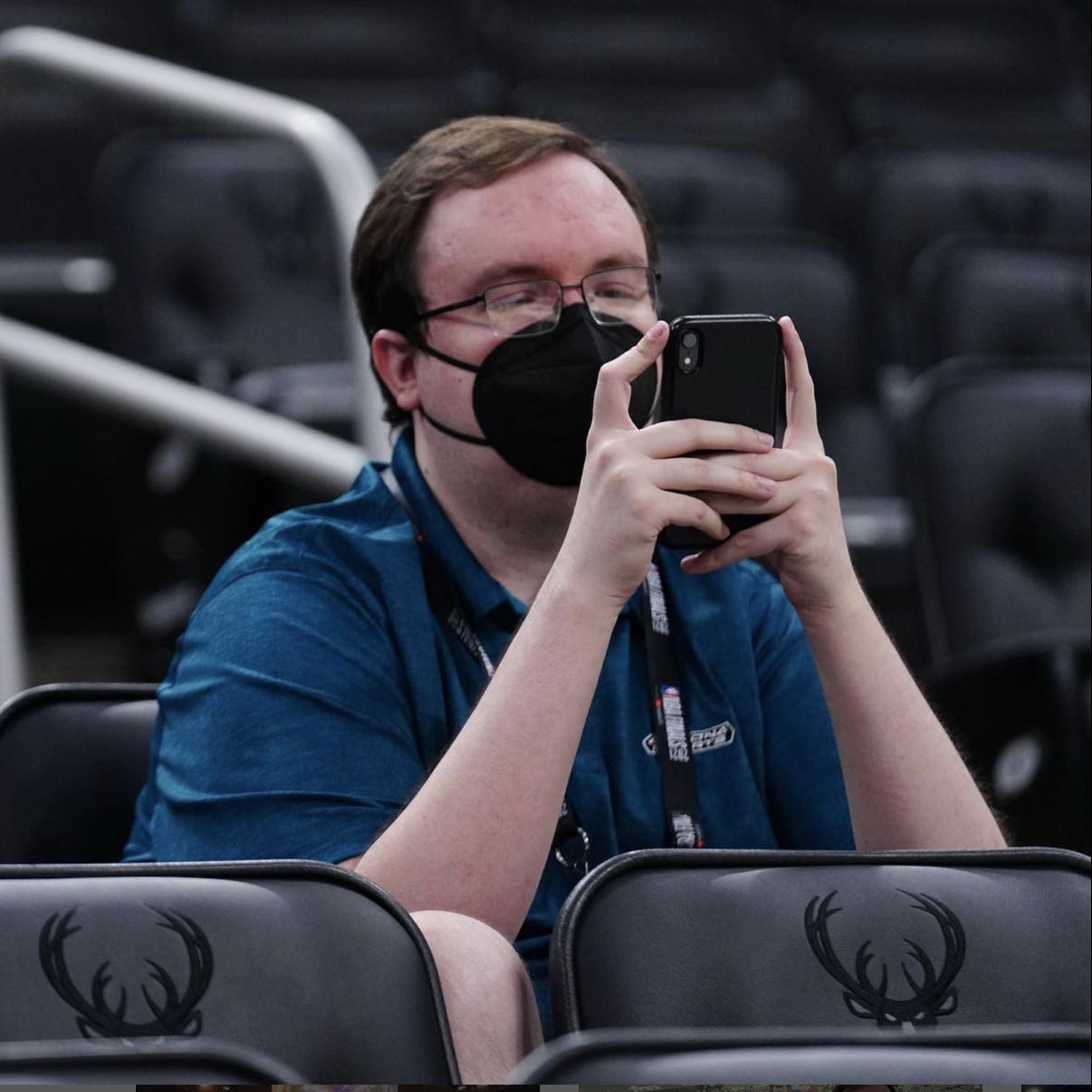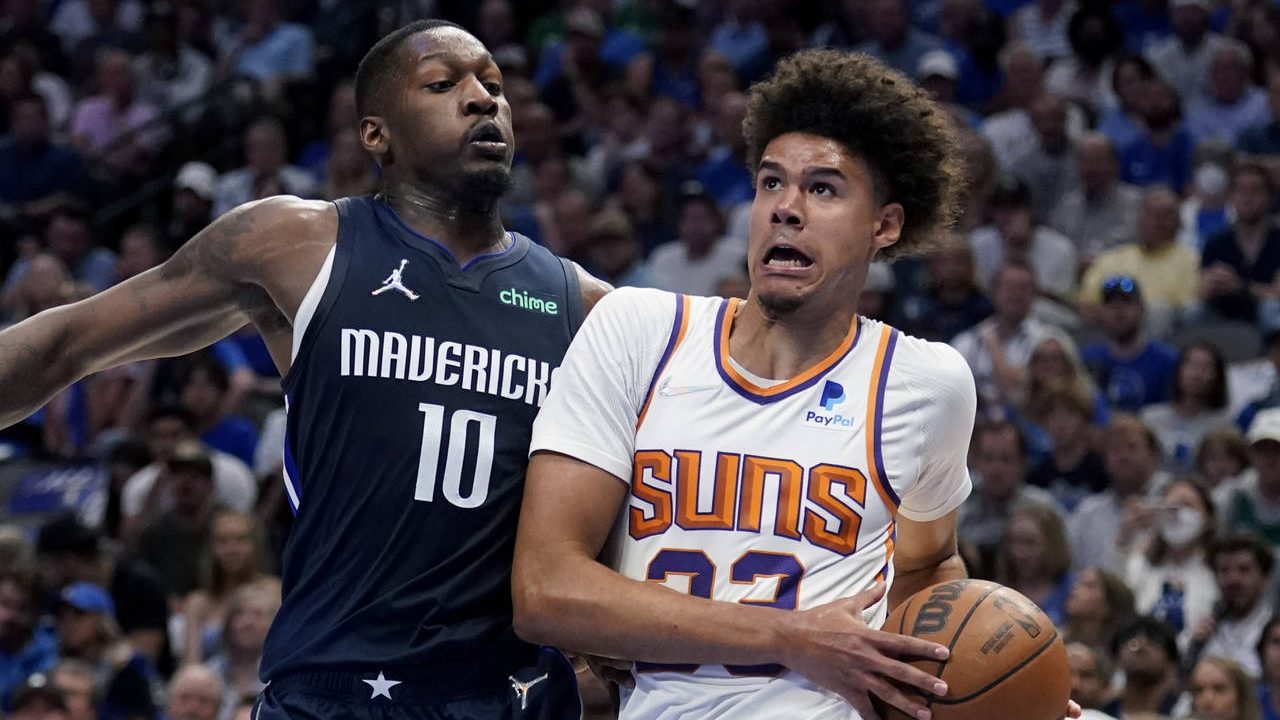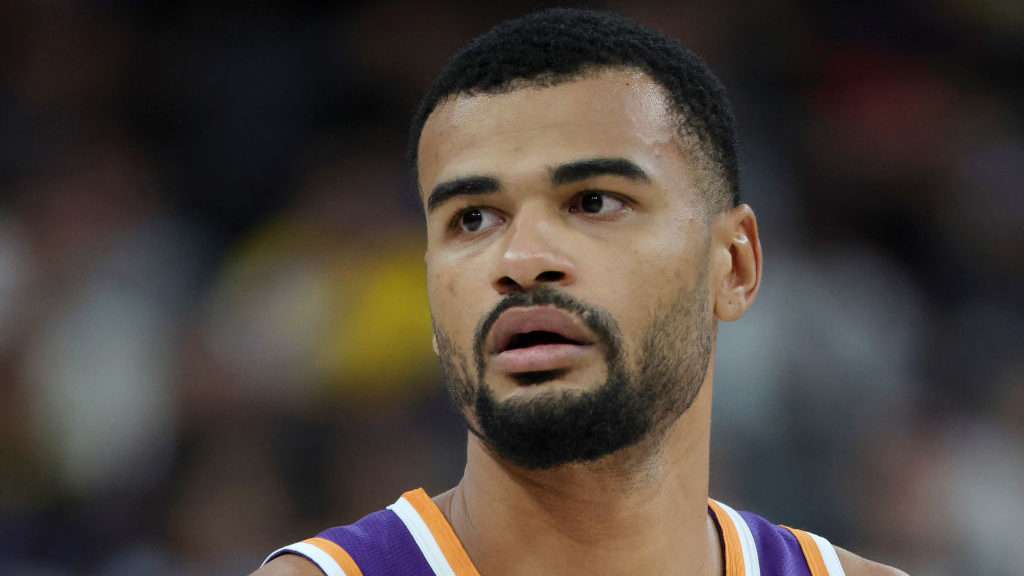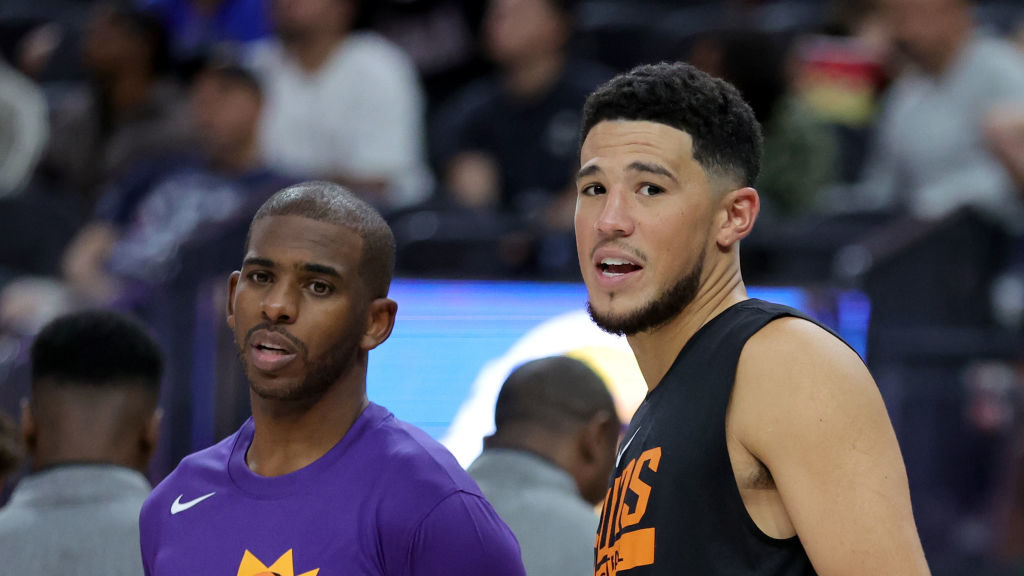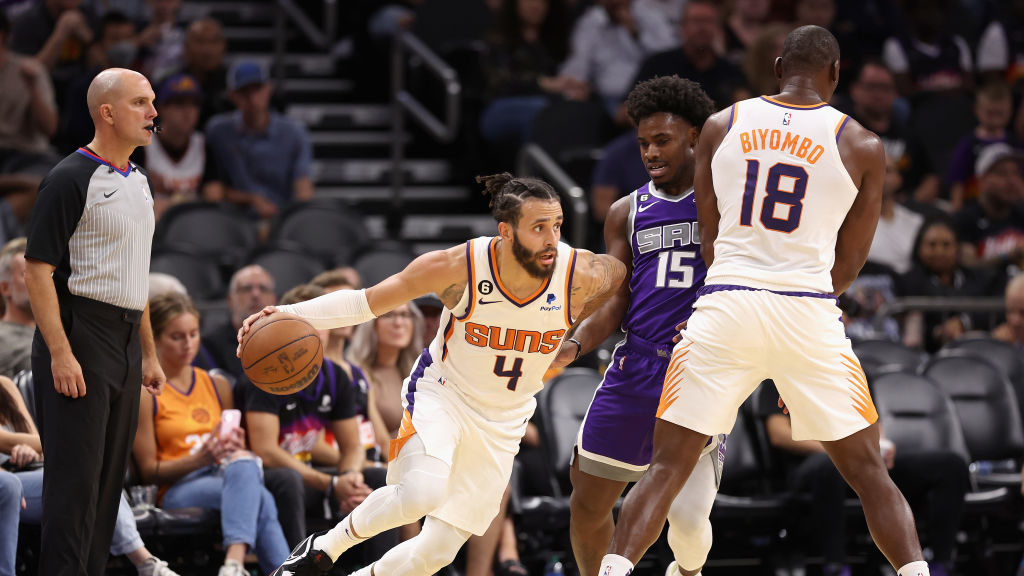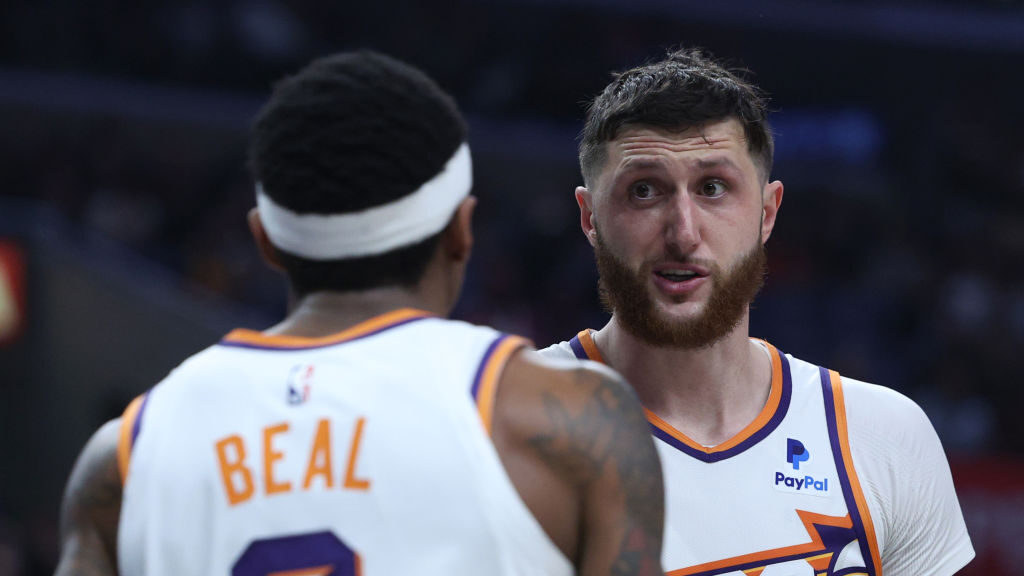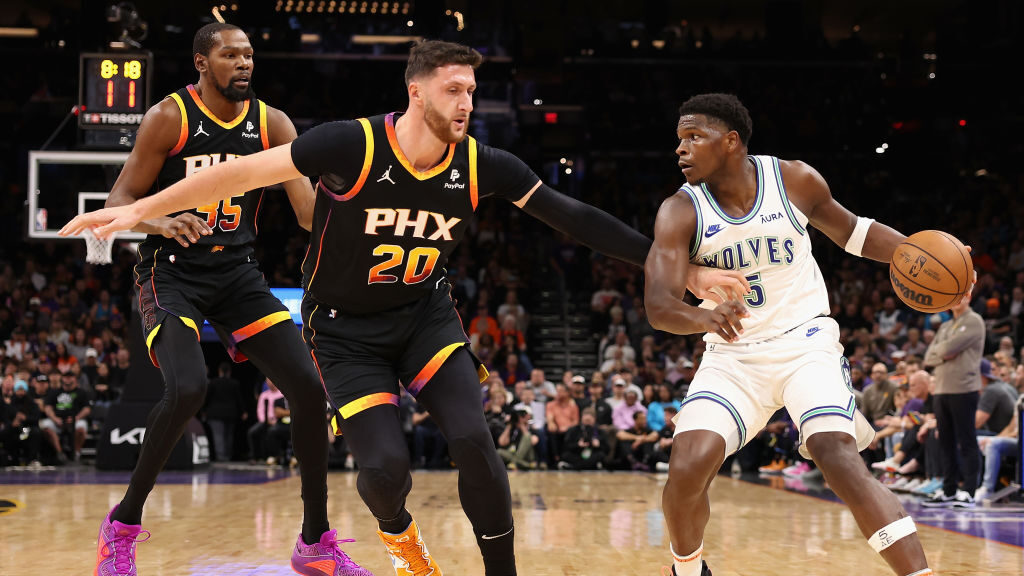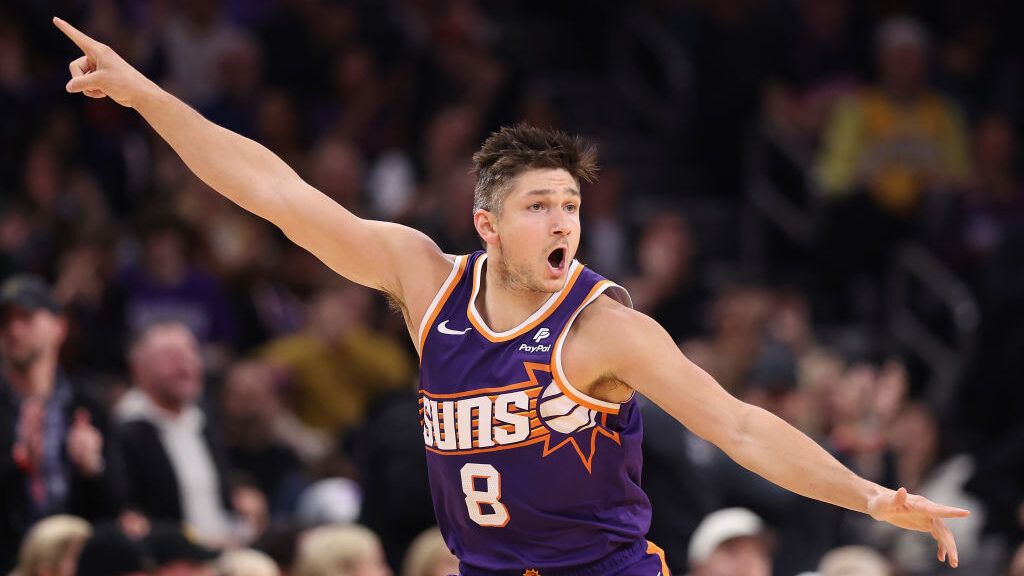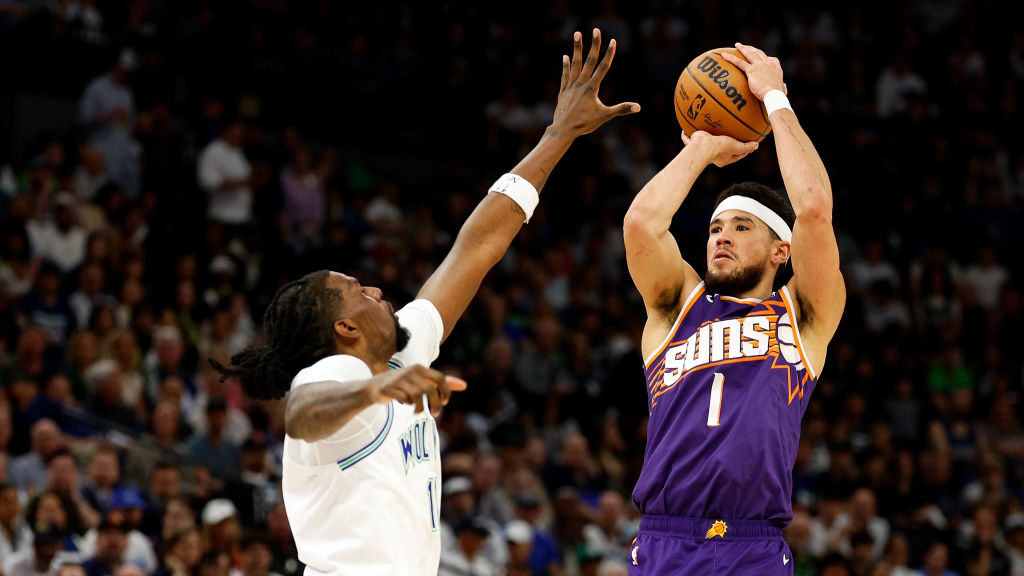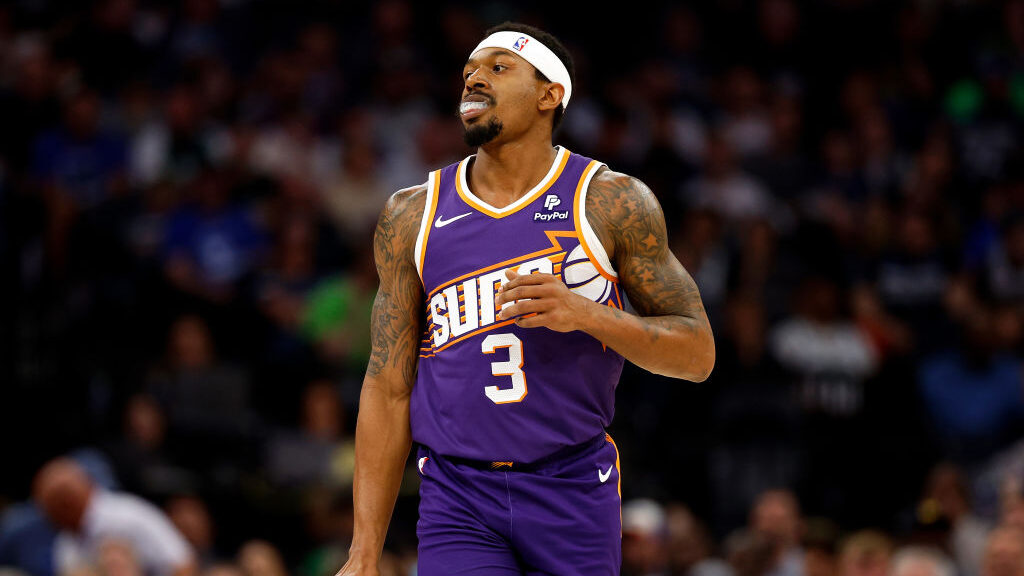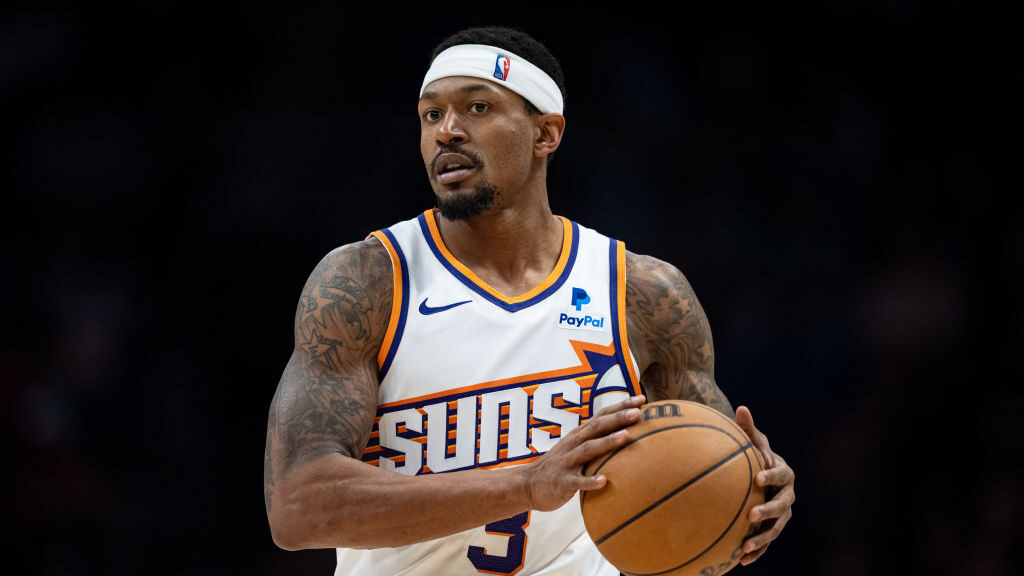No Cam Johnson extension sets crucial timing for Suns’ ownership change
Oct 17, 2022, 4:57 PM | Updated: 5:08 pm
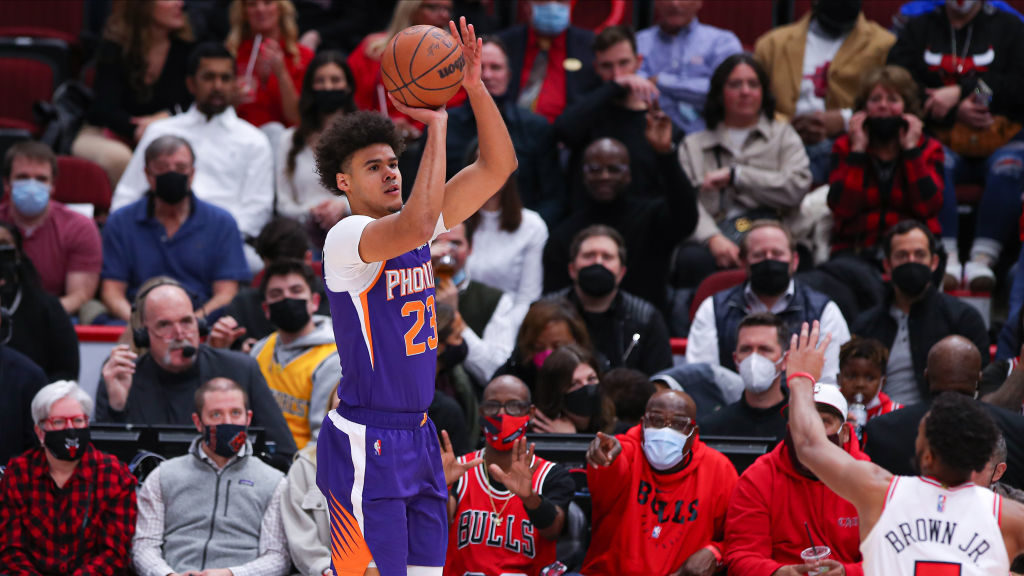
Phoenix Suns Forward Cameron Johnson (23) shoots a three point basket during a NBA game between the Phoenix Suns and the Chicago Bulls on February 7, 2022 at the United Center in Chicago, IL. (Photo by Melissa Tamez/Icon Sportswire via Getty Images)
(Photo by Melissa Tamez/Icon Sportswire via Getty Images)
The Phoenix Suns’ failure to reach an agreement on a contract extension with fourth-year forward Cam Johnson could have come down to a couple of different factors. Maybe Johnson wants to test the market. Maybe the Suns don’t want to give Johnson what he wanted. Maybe the Suns want him to test the market.
Only those involved know. What we — the people not in the negotiations — know is that it has to be asked if the current ownership situation had anything to do with it.
Owner Robert Sarver is in the process of selling the team. That could take six to nine months, per ESPN’s Baxter Holmes.
The new owners will likely be welcomed by a luxury tax bill to pay for the ballooning of the salaries for the 2021 Western Conference champions. For newbies, the luxury tax is a threshold NBA teams meet when its salaries reach such a high point to where it has to pay a fee. The salary cap is just over $123 million this season and the luxury tax level is around $150 million.
Currently, Spotrac has the Suns’ luxury tax bill at just under $35 million, making them a taxpayer for the first time in over 10 years, and they are in a position to be one beyond this season.
Chris Paul is in Year 2 of a four-year, $120 million deal. Devin Booker’s max contract turns into a supermax for the 2024-25 season. The start of his year triggered the new contracts for Deandre Ayton and Mikal Bridges.
A crucial bit to understand is that this takes into account the roster at the end of the season. Oftentimes, we’ll see a couple of teams make cost-cutting moves at the trade deadline to either cut down the bill or remove it entirely.
This means that the timing on the more significant bills, starting with the 2023-24 season if Johnson sticks around, gives the Suns some time if they want to cut that number down. They have two trade deadlines and one offseason to make decisions if they deem it necessary.
Paul’s contract is one of them. It’s only got $15.8 million guaranteed out of $30.8 million next season. I would be shocked if it was a situation where Phoenix would just eat that part of the contract but the completely non-guaranteed fourth and final year for 2024-25 at a flat $30 million when Paul is 39 years old is when it gets interesting on that front.
Then there’s the whole situation with Ayton.
To go back to what we know and don’t know, we know Johnson’s value is objectively high. He’s a 26-year-old wing with size that can defend multiple positions and shoot over 40% from 3-point range while consistently impacting games in a positive manner in between the margins. He has grown as a player every year and I wouldn’t bet on that stopping anytime soon.
Every team wants a player like him. There is going to be a ton of interest.
How big that bill gets in the future is directly impacted by Johnson’s extension if it comes next summer. There is a new broadcasting rights deal coming that many believe will see the salary cap greatly expand by the middle of the decade but that cannot be relied upon entirely since the figures are unknown at this time.
And here’s the important part: The luxury tax has entered the Looney Tunes dimension as of late.
There were seven teams in the NBA last season that paid a luxury tax bill, per Spotrac. Somewhere in the range of a few to a handful has been the trend in the last decade.
For reference, from 2012-20, a team’s luxury tax bill reached at least $40 million only six times. But now there are extremes coming into play.
Two seasons ago, the Brooklyn Nets and Golden State Warriors both had the bills top $100 million.
The Nets’ superteam around Kevin Durant, Kyrie Irving and James Harden, plus a few expensive role players, had them hit that threshold. Even after moving on from Harden, the bill reached nearly $100 million last season and is around there again as it stands for owner Joe Tsai.
Joe Lacob’s Warriors kept their dynasty together of Stephen Curry, Draymond Green and Klay Thompson while swinging for the fences on the trade market with D’Angelo Russell before a take-two with Andrew Wiggins went much better.
The volcanic variable is that because the Warriors were taxpayers in ’17 and ’18 before ’20, which means ’21 was their fourth season in five years paying the tax, forcing them to pay a repeater that makes the penalties even more ludicrous. Last season hit $170 million and this year is set at a similar number.
If you think that’s bonkers, the future projections got absurd once Jordan Poole, the No. 28 pick in the 2019 NBA Draft, turned into a future All-Star. He was recently signed to a four-year extension that could reach $140 million and Wiggins got a new $109 million extension too. That means, per ESPN’s Bobby Marks, the Warriors’ tax bill could hit $268 million for the 2023-24 season.
Then there’s the whacky Los Angeles Clippers owned by the even whackier Steve Ballmer that joined the madness last year.
They were coming off their first year in the luxury tax last season and still traded for Robert Covington and Norman Powell from the Portland Trail Blazers at the trade deadline. The most valuable asset given up by L.A. was just 2021 first-round pick Keon Johnson, and that’s because Covington was on an expiring contract and Norman Powell was in Year 1 of his five-year, $90 million contract Portland gave him.
The Clippers made it happen with two expiring contracts and were more than happy to take on Powell’s money AND extend Covington for a $24 million deal over two years. They ended the year at an $83 million bill for last season and are projected to land at $144 million this year.
Since 2001, the year the luxury tax was implemented following the 1998 lockout, the highest the leaguewide total of bill payments had reached prior to last season was 2003’s $173 million, according to Forbes’ Mark Deeks. For ’22? Nearly triple it. $481 million.
There are essentially three zones that have developed for teams trying to win.
You could be in the wild west with the Warriors, Nets and Clippers, a frightening amount of wealth where I just assume money literally grows on trees.
Then, there is the firmly in contention or spending to win but keeping it from leaving this galaxy. That’s where teams like the Milwaukee Bucks and Los Angeles Lakers landed last year in the range of $45-55 million.
Outside of that, you’re talking manageable fees or none at all.
Sometimes, there are decisions made to avoid it. The Boston Celtics have notoriously made moves at the deadline the last couple of years to dodge the tax while the Dallas Mavericks let the New York Knicks set the highest bid on Jalen Brunson in free agency or else they would have joined the top tier. Remember when the contending Denver Nuggets strangely traded JaMychal Green for a first-round pick in July? Yep! That was to help with this next year.
Sometimes, the roster is designed well enough or young enough to make it work. The Memphis Grizzlies could win the Western Conference this year without the tax because of youth and the Suns actually did it two years ago because Ayton, Bridges and Johnson were similarly on rookie scale contracts with key role players like Jae Crowder, Cam Payne and Dario Saric all on manageable deals as well.
The new ownership group in Phoenix will be in one of those three sections. For Booker, Paul, Ayton, Bridges and Johnson to remain together over the next couple of seasons, the owners would likely have to be amongst the cowboys in the nine-digit club.
It is an undeniable advantage. Will Suns fans be fortunate enough to land themselves a gunslinger?

